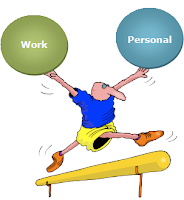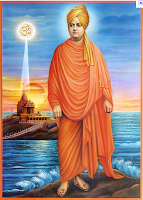
My fourth project from toastmasters competent communicator manual is 'How to say it'. I was thinking about what speech should I give for this project and that's when I realized that it is not about what I say but is about 'how I say'. So as part of today's speech, I have this story, which was told by my uncle when I was young. Title of today's speech, well, let me share it at the end. This way I can at least ensure that my fellow toastmasters & honored guests stay absorbed.
Story revolves around a fictitious character, places and events. Let us call the character John. John is a very hard working person who has a lovely wife and 2 kids. He is the sole breadwinner of his family and works very hard to keep his job. A job, which is not easy, especially because John has an eccentric boss who always does some weird things and has the knack of giving some very odd tasks to John. One time, the boss decides to learn Silvaneese, language spoken in a fictitious country, Silvan. So during that period, one day boss barges out of his cabin and hands over a piece of paper to John and tells him to go to Silvan and have the sentence written in Silvaneese, to be translated in English. Now this was pre internet era where we did not have the luxury of using a google or any other online translator. The Boss orders John to fly to Silvan that very evening and come back within a week. If John fails in his mission that he can look for another job. Now John needs to keep his job and reluctantly agrees to fly to Silvan.
John reaches Silvan and takes a cab to a very economical hotel since his boss had given just enough money. After finishing his check-in formalities, John decides to ask the receptionist to help translate the sentence. This way he can finish the task early and spend rest of the time going around tourist spots, as not very often he will get an opportunity like this to visit a foreign country. So he hands over the paper to the receptionist, requesting him to translate the sentence for him. Receptionist looks at the paper and then hands it back to John with an angry look and says very sternly, not to show this to anyone. John feels embarrassed and decides to stay in his room that evening. He gets up next day, showers and has breakfast in his room itself and then heads out. On his way out, he asks the hotel doorman if there is any good tourist place, which is at a walkable distance. Doorman guides him to a nearby park. In the park, John comes across an elderly person who is walking his dog. John thinks that the elderly person might have more empathy and would surely help him out. So John approaches the person and greets him. Old man greets back with a smile and this encourages John to open up. He asks the man if he could help him in translating a sentence in Silvaneese. Old man responds positively and John hands him the paper. Old man stares at the paper for a long time and then glares back at John angrily. He hands back the paper to John and orders his dog to go after John. John runs for his life and somehow climbs a tree to avoid the dog taking a pound of his flesh. Once the old man leaves with his dog, John musters the courage to climb down the tree and head back to the hotel. He does not come out of his room the whole day. John feels very depressed and is sure that he will most certainly lose the job. Thats when a housekeeper comes to clean up his room. Seeing her, John thinks about befriending her with the hope that she might help him. Next couple of days John is successful in making friendship with the lady but is still not comfortable in asking her help. So he decides to take the risk of extending his stay for couple of days more. Since he got short of money, instead of buying an air ticket, decides to go by ship unreserved. Day before he is supposed to leave, John musters the courage and confides in the lady that he needs a big favor from him. John shares all about his assignment and how important it is for him to keep his job. Lady feels very sorry for him and readily agrees to help him. John hands over the paper. Lady looks at it for some time and without saying a word, she lefts the room with tears in her eyes. John is heart broken and decides that its better he go back and search for another job. Next day he checks out and is waiting for the cab. That's when the housekeeper meets him at the door and passes the paper cautiously and tells John softly that she has translated the sentence and written it on the other side. She asks him not to read this in Silvan and wait to cross the border before reading. John thanks her profusely and gives a hug, saying that she did a big favor to him and takes the cab to catch the ship. Once in the ship, John is in an unreserved compartment full of people, so he does not get an opportunity to read the paper. Once the ship crosses Silvan border, John decides to head out to the deck and read the paper. He reaches the deck and makes sure that nobody is there before taking the paper out of his pocket to read it. John is full of anticipation and curiosity about what the sentence could possibly mean. He takes out the paper and is about to read it when a gush of wind blows the paper away. So the translated answer is in the air and into the dark and chilly sea water.
Fellow toastmasters & honored guests, Title of my speech is ' How to Say A Poor Joke'











